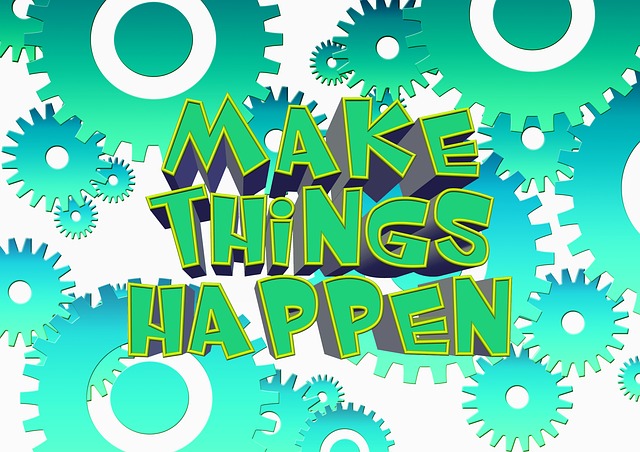Reported speech – advanced

Reported speech can be more complicated than I showed you on the Reported speech – basic page. For example, there are more words that change besides pronouns, possessive adjectives, and verb tenses. Place words and time words also change.
To review, the first kind of reported speech is with statements. All the examples below are statements. Later we’ll look at imperatives, questions and other types of sentences.
In a statement that can be dropped anytime before a subject and verb, so I will put it in parentheses – (that). When you see this word in the examples that follow, remember that you can drop it if you want to.
It’s important to know which words you have to change in reported speech.
These verb tenses change:
present simple –> past simple
Example:
He said, “I like to eat watermelon in the summertime.”
He said (that) he liked to eat watermelon in the summertime..
present continuous –> past continuous
Example:
They said, “We are putting together a basketball team.”
They said (that) they were putting together a basketball team.
past simple –> past perfect
Example:
He told them, “I went to our usual pub, but none of you were there.”
He told them (that) he had gone to their usual pub, but (that) none of them had been there.
present perfect –> past perfect
Example:
He said, “My family have lived in this area for generations.”
He said (that) his family had lived in that area for generations.
present perfect continuous –> past perfect continuous
Example:
They said, “We’ve been practicing for hours.”
They said (that) they’d been practicing for hours.
Past continuous –> past perfect continuous
Example:
She said, “I was working in the garden all afternoon.”
She said (that) she had been working in the garden all afternoon.
However, these verb tenses don’t change:
past perfect –> past perfect
Example:
I said to her, “I had forgotten to lock the door.”
I told her (that) I had forgotten to lock the door.
past perfect continuous –> past perfect continuous
Example:
She said, “I had been wondering about that for a long time.”
She said (that) she had been wondering about that for a long time.
The following modals change:
will –> would
Example:
He told me, “I’ll be there at 11:00 at the very latest.”
He told me (that) he would be here at 11:00 at the very latest.
can –> could
Example:
She said, “I can be at the meeting tomorrow morning.”
She said (that) she could be at the meeting tomorrow morning.
may –> might
Example:
She said, “I may be late, but I’ll be there.”
She said (that) she might be late, but (that) she’d be there.
have to –> had to
Example:
He told her, “I have to go to New York on business.”
He told her (that) he had to go to New York on business.
must –> had to
Example:
She said, “I must see the dentist sometime this month.”
She said (that) she had to see the dentist sometime this month.
However, these modals don’t change:
might –> might
Example:
He told them, “There’s one thing I might do for you.”
He told them (that) there was one thing he might do for them.
could –> could
Example:
He said, “I couldn’t come yesterday because I lost my car keys.”
He said (that) he couldn’t come yesterday because he had lost his car keys.
would –> would
Example:
I told them, “I would visit more often if I could.”
I told them (that) I would visit more often if I could.
should –> should
Example:
She said to him, “I think I should go stay with my aunt in Toronto.”
She told him (that) she thought she should go stay with her aunt in Toronto
ought to –> ought to
Example:
Mother told the children,” You ought to keep your rooms clean.”
Mother told the children (that) they ought to keep their rooms clean.
had better –> had better
Example:
I said to her, “You’d better not be late for your appointment.”
I said (that) she’d better not be late for her appointment.
used to –> used to
Example:
He said, “I used to be a fireman in Chicago.”
He said (that) he used to be a fireman in Chicago.
Place words often change. However, if the place hasn’t changed from the direct speech to the reported speech, then don’t change these words:
here –> there
this –> that
these –> those
Examples:
He said, “I’m supposed to meet him here later.”
He told me (that) he was supposed to meet him there later.
(I’m in a different place when I report the speech.)
They said to us, “You can use this room for a meeting.
They said (that) we could use that room for a meeting.
(We’re in a different place when we report the speech.)
He said, “I read these books when I was young.”
He said (that) he had read those books when he was young.
(The person is in a different place when he reports the speech.)
Time words often change. However, if the time is still the same at the time of the reporting, then don’t change the time word.
next –> the following
last –> the previous / the ____ before
today –> that day
tomorrow –> the next day / the following day
yesterday –> the previous day / the day before
now –> then
in ____ –> ____ later
this –> that
Examples:
She said, “The store is having a sale next Friday.”
She told us (that) the store was having a sale the following Friday.
I said to him, “I didn’t sleep very well last night.”
I told him (that) I hadn’t slept very well the previous night (the night before.)
He told me, “My girlfriend is leaving for Los Angeles today.”
He told me (that) his girlfriend was leaving for Los Angeles that day.
They told us, “We’re having a game tomorrow at the park.”
They told us (that) they were having a game the next day (the following day) at the park.
He said to him, ”I couldn’t find my bus pass yesterday.”
He told him (that) he couldn’t find his bus pass the previous day (the day before.)
I told her, “You have to come with me now.”
I told her (that) she had to come with me then.
She said, “I‘ll be finished in half an hour.”
She said (that) she would be finished half an hour later.
John said, “I can help you this Saturday.”
John said (that) he could help us that Saturday.
In addition to statements, there are other kinds of sentences that you can report.
The imperative (commands) is a little different than statements in reported speech. The verb becomes an infinitive (with to). Use told for your reporting verb or asked if there is a “please.”
Examples:
I said to her, “Go pick up the kids.”
I told her to go pick up the kids.
He said to them, “Please take your seats.”
He asked them to take their seats.
We said to the team, “Do your best but most of all have fun.”
We told the team to do their best but most of all to have fun.
The nurse said to us, “Please wait here and someone will be with you shortly.”
The nurse asked us to wait here and (that) someone would be with us shortly.
Questions are also different in reported speech.
If it is a yes/no or a choice question, then use if. Always use the reporting verb asked. Also, there is no inversion of the subject and verb like in a real question. Also remember to drop the question mark (?) because it’s no longer a question.
Examples:
He said, “Would you like coffee or tea?” (Choice)
He asked us if we would like coffee or tea.
My neighbor said, “Could you look after my dog for a week?” (Yes or no)
My neighbor asked me if I could look after her dog for a week.
He said, “Is it on the top or the bottom shelf?” (Choice)
He asked if it was on the top or the bottom shelf.
He asked her, “Do you live around here?” (Yes or no)
He asked her if she lived around here.
Notice that there is no subject-verb inversion (would we or could we) in reported questions. Always put the subject before the verb in reported speech (we would or we could).
If it’s an information question (who, what, where, when, why, how), then repeat the question word. As above, don’t invert the subject and verb. Again, drop the question mark.
Examples:
She said, “What time is it?”
She asked me what time it was.
He asked her, “Where can I go for coffee around here?”
He asked her where he could go for coffee around there.
He asked me, “Why are you always so tired?”
He asked me why I was always so tired.
We asked him, “How can we find out if we passed or not?”
We asked him how we could find out if we had passed or not.
When reporting invitations, there are 2 ways to do it – the regular way or with an infinitive. Use the reporting verbs invited or asked. Once again, drop the question mark.
Examples:
She said to him, “Would you like to go on a picnic with us?”
She asked him if he would like to go on a picnic with them.
She invited him to go on a picnic with them.
He said to her, “Would you please not smoke in my car?”
He asked her if she would not smoke in his car..
He asked her not to smoke in his car.
[Note that the not is before to, not after.]
We said to them, “Would you like to come over for coffee?”
We asked them if they would like to come over for coffee.
We invited them to come over for coffee.
When reporting advice, there are 2 ways to do it – the regular way or with the infinitive. Use the reporting verb told or advised.
Examples:
He said to his daughter, “You should clean up a bit before he arrives.”
He told his daughter (that) she should clean up a bit before he arrived.
He advised his daughter to clean up a bit before he arrived.
She told her boyfriend, “You should call me when you arrive in Calgary.”
She told her boyfriend (that) he should call her when he arrived in Calgary.
She advised her boyfriend to call her when he arrived in Calgary.
The teacher said to the students, “You should check your writing for mistakes.”
The teacher told the students (that) they should check their writing for mistakes.
The teacher advised the students to check their writing for mistakes.
When reporting requests, do it the regular way or use the infinitive. The reporting verb is asked.
Examples:
The coach said to the team, “Could you please be on time tomorrow?”
The coach asked the team if they could be on time the following day.
The coach asked the team to be on time the following day.
The man said to us, “Would you please be quiet so I can hear my cellphone.?”
The man asked us if we would please be quiet so he could hear his cellphone.
The man asked us to please be quiet so he could hear his cellphone
I said to him, “Can you help me move on the weekend?”
I asked him if he could help me move on the weekend.
I asked him to help me move on the weekend.
When reporting permission given, do it the regular way or use an infinitive. The reporting verbs to use are told, invited or gave (someone) permission.
Examples:
I said to Jonathan, “You can stay at my place for awhile.”
I told Jonathan (that) he could stay at my place for awhile.
I invited Jonathan to stay at my place for awhile.
He said to his friend, “You can use my bike this afternoon.”
He told his friend (that) he could use his bike that afternoon.”
He gave his friend permission to use his bike that afternoon.
We told them, “You can stay here until the store closes.”
We told them (that) they could stay until the store closed.
We invited them to stay until the store closed.
One last thing. If the reporting verb is in the present tense (say, tell, ask), or if you’re reporting the speech immediately, then make no verb changes.
Examples:
She said, “What time are we going home?”
She asked what time we are going home. [Immediate reporting. No change in time or place.]
His friend always tells him, “You would be rich if you worked harder.”
His friend always tells him (that) he would be rich if he worked harder. [Reporting verb is present tense.]
They asked us, “Will you help us.”
They asked us if we will help them. [Immediate reporting.]
Let’s review:
Statements:
She said, “The rainbow is beautiful.”
She said (that) the rainbow was beautiful.
Imperative:
He told the class, “Take your seats.”
He told the class to take their seats.
Yes/no or choice question:
John said, “Would you please stop talking.”
John asked them if they would stop talking.
Information question:
They asked me, “When will the game start?”
They asked me when the game would start.
Reporting invitations, advice, requests and permission:
We told them, “You can stay overnight, but you must leave in the morning.
We told them (that) they could stay overnight but they had to leave in the morning.
We invited them to stay overnight but they had to leave in the morning.
Immediate reporting or when the reporting verb is present tense – no verb tense change:
She asks me all the time, “Are you going for a run?”
She asks me all the time if I‘m going for a run.
Study this page again, and when you’re ready, take the following quiz.
Your Score:
Your Ranking:
© 2013 Ambien Malecot






